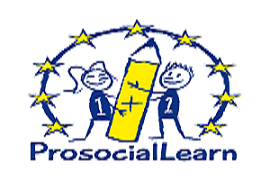
Gamification in e-learning aims to engage learners by applying game elements, mechanics and thinking to encourage motivation, promote extrinsic and intrinsic motivation, and enhance learning in a stimulating environment without a physical teacher.
e-Learning & Gamification
Gamification aims to facilitate learning and encourage motivation through the use of game elements, mechanics and game-based thinking. Its main goal is to engage and motivate learners to become active participants of the learning process. In other words, gamification is based on the assumption that the game experience can be translated to an educational context towards the goals of facilitating learning and influencing student behavior. Games promote extrinsic and intrinsic motivation through the setting up of goals and rewards. Their main advantage is that they motivate learners to invest effort and commitment in the learning tasks. These two aspects are really important for the development of stimulating learning environments, to be used even without the help of a real teacher.
In recent years, serious games have attracted increasing interest in the area of education offering students new augmented learning opportunities. Serious games focus mainly on developing the skills and knowledge of their players and are considered as high potential educational tools able to provide educational content along with interactive, engaging and immersive gaming experiences. Emotion recognition and multimodal signal analysis techniques can also play a crucial role in the development of intelligent serious games. Such games can support natural human computer interaction functionalities and adjust their content accordingly based on the extraction of behavioral cues or the recognition of the affective state of the player.
Learning in a rapidly changing world requires not only effective technological support and appropriate infrastructures, but also the implementation of suitable pedagogical and affect-aware approaches that break down existing barriers and divisions. The MaTHiSiS project provided a platform for vocational training and mainstream education for both individuals with an intellectual disability and non-diagnosed ones. Non-linearity in learning is also enhanced through the interaction of the MaTHiSiS ecosystem with learners and tutors in a ubiquitous manner and incorporates different knowledge and experiences that, once injected to the system, provide a new, holistic approach by sharing this knowledge across the system components.


